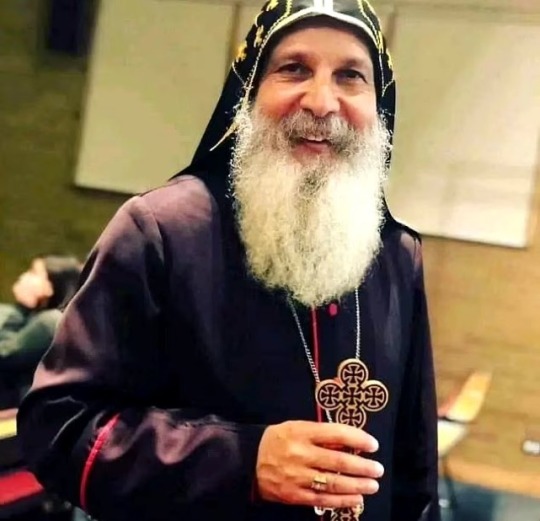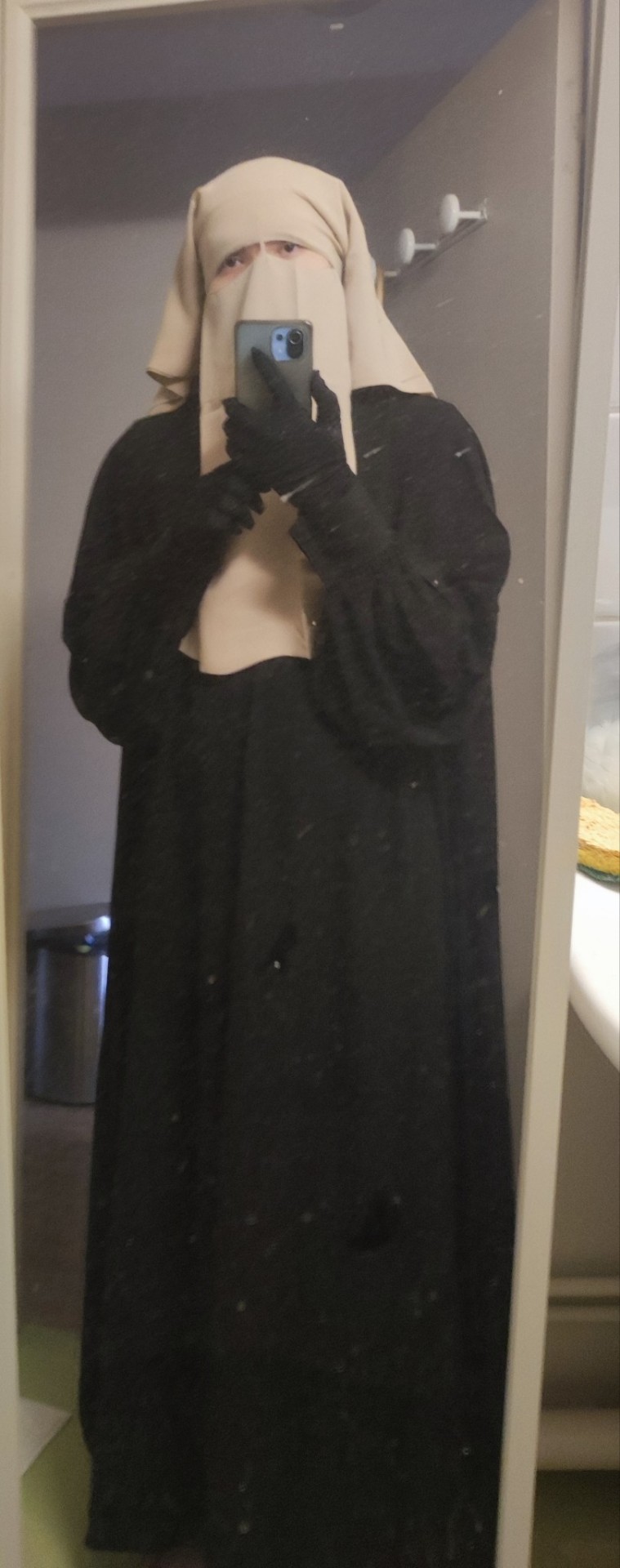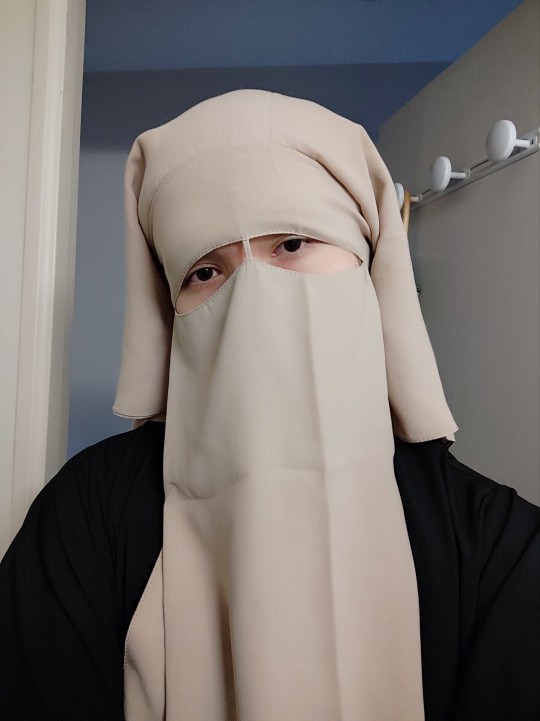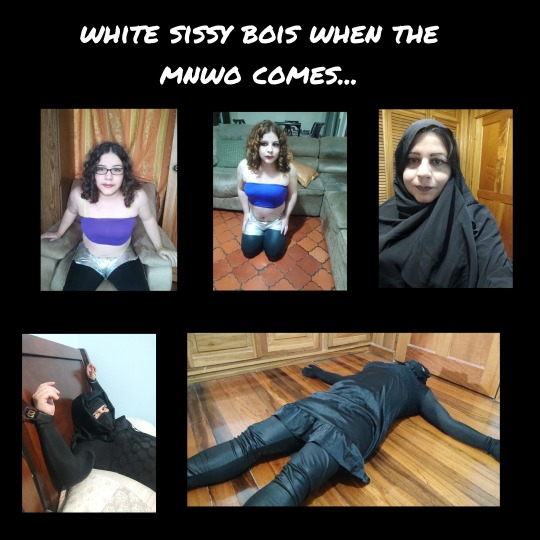#islamic supremacy
Text

Enforce the Muslims to take up the British values? Nah. Nah, we don't like your culture. We don't like your gambling and your homosexuality and your promiscuity and your man-made laws. We don't like that. I think what we've got is better. We'll keep to that. No thanks. We believe that Islam is the best way of life. And the Islamic way of life is the best. The Sharia is the best law. And we believe sovereignty is only for Allah. And it's why we stick firm to it.
They don't respect your country or your culture, they have no intention of adapting or integrating, and they think all your country's values are wicked and sinful. They want to turn someone else's country into their religious hellhole. Deport. Not kidding. Someone like this, deport them. They're not there to participate in British life. They're there with the purpose of taking over and converting your country to their primitive superstition.
Believe them when they tell you what they're up to.
59 notes
·
View notes
Text
BREAKING: More peace from the religion of peace:
A Muslim jihadist yelling "Allahu Akbar" attempted to murder a Christian Bishop, a pillar of the Christian community in Sydney Australia was repeatedly stabbed today while giving a sermon.
Bishop Emmanuel was hospitalized with multiple stab wounds. 3 others were also stabbed as they attempted to wrestle the jihadi to the ground. The man is smiling in the second picture attached.
Bishop Emmanuel is a popular figure in Sydney and was a vocal voice against Australia’s COVID lockdowns and vaccines calling it ‘mass slavery.’
The attack took place at Christ The Good Shepherd Church is in Wakeley, in Sydney's west.
Hundreds have now gathered outside the church reacting in anger and shouting ‘an eye for an eye’ as riot police have been deployed.


#religion of peace#religion of pieces#israel#secular-jew#jewish#judaism#israeli#jerusalem#diaspora#secular jew#secularjew#islam#Islamist#jihadi#jihad#Australia#Sydney#attack#Islamic supremacy#supremacy#bishop Catholic#Christian#Hamas
31 notes
·
View notes
Text

#sissymuslimah#transvestite#bnwo#femboy#sissy muslimah#feminization captions#feminized and islamized#mnwo#muslim supremacy#niqabi crosdresser#trans muslimah#trans muslimah sisterhood
272 notes
·
View notes
Text




The Young Reverts of the UK
#arab superiority#islamification#muslim men#muslim supremacy#muslim#eurabia#arabic#islam#saudi arabia#race traitor
270 notes
·
View notes
Text
Got my new niqab and I love it !! All whites should wear it ! It's feel sooo good and right !
All whites should be modest !





229 notes
·
View notes
Text

My husband treated me like a queen, little did he know. He could never feed my urges.
#hijab#arab men#black owned#nbwo#white women black men#arab superiority#arab master#roleplay#breeding pet#mnwo#muslim supremacy#muslim superiority#islamic#islam#say no to white bois#white girls gone black#bbc breeding#interracial breeding#bbc bull#bd/sm master#black cock only#muslim#use my throat#free use cnc#cnc free use#free use kink#slap my face#slap my ass#bd/sm slave#rough cnc
67 notes
·
View notes
Text
👨👉👳♂️

One less christian one more Muslim

It is no coincidence that Muslims call Allah the ultimate planner. The English empire in previous centuries forcibly conquered distant Muslim lands as far as Pakistan and Afghanistan. Today the Muslims come and conquer them peacefully without weapons in their own homes. This 21-year-old Scot without being pressured by anyone defected to the army of Allah. He knelt and under the smiling gaze of his instructor repeats the words that bring him further and further away from Christianity and from the life he had until now. Instead of wearing the kilt and going to a bar for a whiskey, he chose the Muslim thobe and abstinence from alcohol. Yes, Allah is the great planner, and with his plans some are pleased and some others - his opponents - lose sleep.
#christian2muslim#convert to islam#islam#mashallah#muslim#religion traitors#new muslim#mnwo#arab superiority#muslim supremacy#shahada#shahadah#newmuslim#faithtraitor#onelesschristianonemoremuslim
83 notes
·
View notes
Text

304 notes
·
View notes
Text
#muslim supremacy#islamification#arab superiority#veiling#jilbab#headscarf#hijabi#hijabstyle#hijabfashion#hijabers#hijab#hijab model#hijab girl#niqab#niqabi#niqabstyle#women niqab#convert to islam#islam4europe#islamization#revert to islam
202 notes
·
View notes
Text

These pro-Hamas terrorist supporters claim to be "anti-war" and want a "ceasefire," while celebrating a (failed) attempt to eradicate Israel from the face of the Earth. Meaning, they're as "anti-war" as Antifa is "anti-fascist"; they're in favor of war/fascism when they do it.
These crazed fanatics support the brutal Islamic regime of Iran. You remember, the one that the citizens had an uprising against when Mahsa Amini was murdered. At the time, even the most left-wing ideologues finally got around to condemning the regime, albeit with the caveat that the fault lies with the regime, not with Islam, and scolded us not to be "Islamophobic" about it.
Now, far-left western terrorists are shouting "Allahu Akbar" and cheering for the same regime, having decided their goals line up with those of a far-right fundamentalist theocracy.
Given they're chanting "Allahu Akbar," any claim that this isn't about Islamic supremacy is completely dishonest. These people need to be removed from our societies before they destroy them and turn them into Islamic hellholes.
#ceasefire#antisemitism#Iran#israel#iran vs israel#anti war#islam#islamic regime#islamic republic of iran#iranian regime#islamic supremacy#religion#religion is a mental illness
24 notes
·
View notes
Text
The massacre of October 7 brought us back to the fundamental questions dealing with who controls this piece of land. Veteran historian Prof. Yoav Gelber lists a series of profound differences between Zionism and European colonialism, and explains why the "two-state solution" is an illusion, stressing that Israeli society needs to return to the "we" ethos.

Prof. Yoav Gelber
By Matan Hasidim, Makor Rishon; Published on 02-21-2024 18:20
Shortly after the outbreak of the war, Al-Jazeera released a short video that spread like wildfire online about the "colonial roots of the Zionist movement." In fluent English, viewers were explained what 19th and 20th century European Jews were like, the British imperialism, and the present-day Israeli "apartheid state."
The video included interview segments with Israelis who participated in the War of Independence, reinforcing the narrative that the country's Arab residents were murdered or expelled from their homeland by a trained, equipped, and cruel Jewish-European army. The message was clear: Zionism's success was made possible by the firepower of European colonialism, and the state of Israel was born in an original sin.
"This is not a new argument," historian Prof. Yoav Gelber says. "It already came up at the First Palestinian Congress, which convened in Jerusalem in January 1919. It should be prefaced that Islam in general does not see Jews as a people. Judaism is a religion only, and religious people do not need a nation-state and territory of their own, certainly not at the expense of others, especially not at the expense of Arab Muslims. All this was not yet on the agenda in 1919, but the participant asked 'If the Jews arriving in the country is not a 'people,' what are they? The answer given was that they were colonialists. To this day, this is the overarching narrative in the Arab world, certainly among the Palestinians."
Gelber, 80, is an emeritus professor and historian of pre-state Israel and the Israeli-Arab conflict. He has dealt extensively with the relationship between colonialism and Zionism. Two of his books – "History, Memory and Propaganda: The Historical Discipline in the World and in Eretz Yisrael" (Am Oved, 2007), in which he also argues with some of the "new historians" and post-Zionists; And "Independence and Nakba" (Dvir, 2004), on the War of Independence from Israeli and Arab perspectives – extensively address this issue as well.
"Until the mid-twentieth century and the era of decolonization," he explains, "this argument did not carry much sway because 'colonialism' was not yet a dirty word. Apart from the resistance movements that began to emerge in India and – to a limited extent – in the Arab world (in Egypt and Iraq), half of the world was still under colonial rule. After the post-colonial era began – a trend that began after World War II – colonialism increasingly became synonymous with everything bad in the West, and Palestinian arguments began to get a receptive audience."
Q: Is there a resemblance between Zionism and colonial movements around the world?
"The common definition among today's opponents of Zionism is that this is a movement belonging to 'settlement colonialism,' as opposed to colonialism for economic purposes, where colonies were established to serve empires' economic needs. Zionism is indeed a movement of immigration and settlement, like other colonial movements in history, but that's where the resemblance between Zionism and colonialism begins and ends, Gelber says.
"The Zionist immigrants did not come here armed to their teeth like the American pilgrims or the conquistadors that came to South America. Unlike other colonial movements that suppressed the native population while seizing their land, until the establishment of the state, the Jews bought land with hard cash from the Arabs and settled on it. No other colonial movement has operated in this way."
Gelber says this point could also embarrass Palestinians today. "They argue that the lands were sold by landowners living outside Eretz Yisrael, in Beirut or Damascus. This argument is only partially true. No family from the Palestinian elite, including the Husseini family, is missing from the list of land sellers to Jews before the establishment of the state," Gelber says.
"Here lies one of the great early Palestinian failures in this conflict. Initially, no Arab tried to prevent the sale of land to Jews. Only later, as the national character of the conflict became more dominant, did things change – Arab efforts were made to prevent the sale of land to Jews through the use of violence and boycotts against sellers, and even a fund was set up to purchase land from people in financial straits who to sell land [so that they won't sell to Jews]."
Between Algeria and Degania
"Another significant difference between colonialism and Zionism," Gelber continues, "lies in the very Zionist choice to immigrate to Eretz Yisrael [Land of Israel]. Immigration usually occurred from crowded or poor countries towards areas like the early United States, Brazil, Canada, Argentina, and Australia – which were rich in resources but lacking in manpower or knowledge to exploit these resources. The immigration of the Jews was to a country with scarce resources that ejected people because it was unable to sustain them. Even as Jews carried out the waves of immigration known as the First and Second Aliyah there was a parallel trend of people leaving the land towards the classic immigration countries like the United States, Australia, or South America. This emigration included not only Jews but also Arabs, mainly Christians but also Muslims."
Another difference they point out is that the Zionist settlement was not intended to serve any "mother country" like in the colonies of European colonialism.
"Look, there was a fundamental difference between the Europeans who went to a Muslim country like Algeria and the Zionist settlers who arrived in Degania. Any European who arrived in Algeria under French auspices, or an Englishman who migrated to India, did not claim to be renewing an ancient national tradition that had been tied to the country he migrated to. Colonial movements in general were looking for a future, sometimes an economic future, or acted on behalf of Christian missionary-ideological goals. In contrast, the Jews were looking for their past. Every Jew everywhere in the world, throughout the exile, saw themselves in exile and remained faithful and prayed to Eretz Yisrael. This is the basis for the right of Jews to return to the country, and in that sense, we are not that foreign to the region."
The theory of stages
I present Gelber with a common argument on the Israeli Left that even if one is convinced that Zionism itself is not colonialist, the settlement enterprise in Judea and Samaria is indeed an expression of Israeli colonialism. "One of the hallmarks of postmodernist thinking is that everyone invents a thesis and defines definitions as they wish, and then builds an entire theory on that thesis," Gelber replies. "This argument is not related to how things actually happened in reality. In Palestinian eyes, the Jewish 'colonialism' in the country begbeganth 1917, if not earlier – in 1881. As mentioned, post-colonial theories began to gain popularity in the West in the sixties. It's not that important whether it's before '67 or after '67, because the colonialist claim of the Palestinians towards us does not refer to the 'occupation' of the Six-Day War.
"This is indeed one of the most common mistakes in the narrative of the Israeli Left, that 'all the troubles began with the occupation.' Palestinian claims existed long before the 'occupation.' Settlements in Judea and Samaria are a continuation of the Jewish presence in the land. There was a war in '67, and it had consequences. Whether or not one should settle there is an internal Israeli debate. Why should a Jew have the right to live in Tel Aviv but not in Kiryat Arba? From the standpoint of historical rights, it is the same right. The debate is only about whether it should be realized."
Q: The two-state solution is now back in vogue in international discourse, including in light of statements by the Biden administration. In your view, does it have a chance?
"I've been writing for about thirty years, maybe more, that the Palestinians' goal has never been just to get a state. 'State' is perhaps an interim goal for them, certainly not a final one. When Mahmoud Abbas talks about a state, for him it's stage one. The ultimate goal is to return Eretz Yisrael to its Arab character, in which there may be a Jewish 'millet' (the term given in the Ottoman Empire to a non-Muslim community protected by law) as in Ottoman times.
"We are fooling ourselves if we think that what is called the 'two-state solution,' meaning the Arabs agreeing to accept 15% of what they see as 100 percent theirs, will end the conflict. Anyone who thinks so is simply living in La La Land. No chance in hell, it's not part of the mindset of the Arabs".
Q: We recently made peace with Arab states like the United Arab Emirates. Can this not happen with the Palestinians?
"The Arab consciousness of patience plays a very central role. In their eyes, the Palestinians have gone through the Turks, the English, and the Jordanians, and they will also go through us. 'Now' is an Israeli concept, and as for the concept of 'peace' the question is what do you mean? There is the 'peace' that is an agreement between countries that recognize each other, and accept each other's sovereignty and borders. This can exist between us and the Arabs. It is a fact that it exists with Egypt, Jordan, the Emirates, and perhaps in the future with Saudi Arabia. And there is the peace of the end of days, of 'the wolf shall dwell with the lamb' – a peace that will probably never happen with the Arabs, because we are a foreign transplant for them. And with the Palestinians, peace of the first kind cannot happen either.
From the Chinese farm to the University of Haifa
History is a family affair for the Gelbers. Nathan Michael Gelber, Yoav's grandfather, was a historian of Polish Jewry and early Zionism. "In my childhood, I spent quite a lot of time in grGrandpa'sibrary, a huge library that is now at Ben Gurion University in the Negev. His father, my great-grandfather Nachman, was also an amateur historian." Yoav Gelber's father, Emmanuel Gelber was a colonel in the IDF and commander of the IDF Ordnance Corps (today's Logistics Corps) in the 1950s. Later he joined the Foreign Ministry and served as ambassador to several countries. According to his son's testimony, "he too loved history, and as a native Austrian he helped me with the book I wrote about the 'yekim'[German-speaking Jews who arrived in the Fifth Aliyah]. So you can definitely say we are a line of historians," Prof. Gelber says.
He remembers his first encounter with the field that would become his main occupation. "In second or third grade I read historian H.A.L's 'A History of Europe'. I was missing only the third volume out of the six, so I had to complete the 16th century later," he laughs.
In his youth, Gelber considered a military career. He began his service in the Paratroopers Brigade reconnaissance unit, and from there went to officer training. After several military roles, he went to study for his bachelor's degree at the Hebrew University of Jerusalem and returned to the army as commander of the military academy for education when the Yom Kippur War broke out.
"On October 6, 1973, the day the war broke out, I went to the headquarters of the Chief Education Officer at the General Staff and told them 'hello, see you after the war'. I went to Tel Nof, there were 30-40 officers, and they created a unit from us. One of the company commanders was killed in the battle of the Chinese Farm."
As part of the offensive to cross the Suez Canal, the battle of the Chinese farm was known as one of the harsh and bloody battles of that war; 163 soldiers lost their lives there. "One of the things that contributed to the fact that I did not get traumatized from the battle at the Chinese farm or the war in general was the fact that I was in charge of people. The responsibility helped me get through it," says Gelber. Shortly after the end of the war, Gelber was appointed as a staffer of the Agranat Commission, which investigated the failures that led to the blunder. "I got a reputation there as someone who could get a handle on a large amount of documents, and my role was to organize and make accessible the large amount of material that had accumulated. Later I was assigned additional tasks, and at the end of the work I had the privilege of drafting the final report," he says.
According to Gelber, "the lapses of October 7 are much greater than the failure of '73. It's a whole different order of magnitude. On Yom Kippur 1973, the IDF failed to defend Israel's borders, and then corrected the failure, at least partially. On October 7, 2023, it failed to defend Israeli civilians, which is its primary purpose. Borders can be regained, those who were murdered that day cannot be brought back.
After his release from the IDF, Gelber wrote his doctoral dissertation on the history of volunteering from the Yishuv (Jewish community in pre-state Israel) to the British armed forces in World War II. Later he expanded his work into four monumental volumes. Over the years Gelber has published a long series of books and studies covering various angles and areas in the history of Zionism and the State of Israel. He taught for many years at Haifa University and is currently a professor at Reichman University in Herzliya. Gelber and his late wife Ruth, who passed away in 2021, have four children. One of them, Anat, was a world champion in debate. "I'm not so good at it. Someday they will say I was her father," he smiles.
Gelber has also become famous for his intense sparring with the "New Historians" – a group of scholars, historians, and sociologists who have revisited the history of the Yishuv in general and the study of the War of Independence in particular from a post-Zionist perspective that is critical perspective towards the accepted Israeli narrative. During the 1990s and the 2000s th, eir arguments received much resonance in Israel and especially abroad. Among the prominent figures in this school of thought are Benny Morris, Avi Shlaim, and Ilan Pappe, and sociologist Tom Segev. Gelber has frequently lashed out, sometimes vociferously, against them. He also directed criticism against publications of other figures from the Left in academia.
In his aforementioned book "History, Memory and Propaganda", Gelber defines part of that they wrote as "the process of the displacement of history in the face of propaganda." In his view, this expresses an anti-Zionist ideology that continues the intra-Jewish opposition that accompanied Zionism from its inception, from three focal points: the ultra-Orthodox, the socialists, and the liberal-assimilationist. What's new in the post-Zionist approach was that they turned what was essentially a Diaspora phenomenon into a blue-and-white, indigenously made phenomenon.
"My arguments are not with the 'New Historians' because there isn't such a school of thought to officially speak of," says Gelber. "As has already been shown, each one stands alone. I also differentiate between Benny Morris and the others. Benny is a serious scholar who has gone to archives, compared different versions, and sought to get closer to the truth. The historical truth did not really interest the rest, or they just simply trampled it."
Over the years, Morris has changed his views on the conflict and has himself become a prominent critic of Avi Shlaim and especially Ilan Pappe. I show Gelber an article in which Morris calls Gelber "a die-hard right-winger." Gelber is surprised. "I have never been a 'right-wing man'," he says. "I try to examine every issue on its own merits. There are issues where I am more left-wing than Meretz, and others where I am more right-wing than Likud. I'm not politically committed to anyone, and my worldview is Zionist."
Zero Sum Game
Over the years, a major personal dispute has erupted between Ilan Pappe and Gelber and other scholars at the University of Haifa. Pappe, who was at that time from the University of Haifa, argued that they were seeking to remove him from his position due to his critical political views. The university argued, as did Gelber, who was Pappe's colleague in the Department of History, that these were professional considerations. Pappe, who identified himself as a supporter of the Hadash party, emigrated to Britain and openly supported the boycott of Israeli academia from there, claiming that it had expelled him from its ranks due to his views while violating freedom of expression.
Gelber sees Pappe more as a propagandist than a researcher and accuses him of using his status as a historian to spread pro-Palestinian propaganda while distorting facts, and contexts and defaming colleagues. "When I still had a dialogue with Pappe," he recounts, "he once explained to me that the kindergarten teacher had deceived them. In other words, he discovered during his academic studies that the Zionist narrative he learned in school was false. So he went to look for the right story. That supposedly motivated him. But as I have revealed, some of them also had political or ideological agendas that they brought from their home, where one of the parents could have been a Bundist, or assimilationist in central and western Europe, or was a communist in Eastern Europe."
Q: And the kindergarten teacher didn't deceive us?
"To some extent. The Zionist narrative has weaknesses, I don't buy it wholesale, but at the same time I try, and I hope I am successful, to reconcile it with the fact that I see myself as a Zionist, with an effort to write the truth even when it is not pleasant for the Zionist narrative. I think the central issue is whether the approaches of the 'new historians' were derived from research. People went to archives before them too, that is not something new. The only major novelty they brought was shifting the focus from Israel's victory to the suffering of the Palestinians. The anti-Zionism that was present in some of their research is not new either. It is as old as Zionism itself. This debate was usually conducted between Zionists in Israel and communists other Jews who were in exile. The 'new historians' opened an internal Israeli blue-and-white debate on these issues, one that did not exist here before."
Q: Benny Morris recently stated that he was going to publish a book showing that Jews committed more massacres of Arabs in 1948 than they perpetrated against us. What do you think?
"There might be a basis for this," replies Gelber. "The Arabs didn't have many opportunities to do so, and we had more. Second, regarding one of Benny's studies, which exposed several atrocities that the IDF committed in the years after the War of Independence, Meir Pa'il (IDF commander, military historian, and left-wing activist) once wrote that if this is what Benny managed to glean from among tens of thousands of incidents, it is a badge of honor for the IDF that there were only ten such cases. I agree with that statement."
Q: How do you view the conduct of the IDF in comparison to other armies in history?
"In general, such comparisons are misplaced. They are abstract and ignore the contexts of time and place. Three years after the end of World War II, no one in the young State of Israel thought that of all the people who suffered in the twentieth century, only the Palestinians were not allowed to suffer. Among the fighters were Holocaust survivors, people who had seen a lot of atrocities in their lives. Last year I was in Vietnam and visited the My Lai museum, the village where the Americans committed a famous massacre. One can also think of the Red Army arriving in Germany and carrying out one of the largest rape campaigns in history in order to harm the 'German racial purity,' or contemporary organizations like the Taliban or Al-Qaida, and understand the broader context. I don't agree with all kinds of clichés that 'the IDF is the most moral army in the world,' but at the same time one must understand the proportions, and we are definitely in a good place in the league of moral armies."
Q: What about the 1948 expulsion incidents, engraved in Palestinian memory?
"The expulsion cases by the IDF were relatively few. It was mainly about panic or escape before the IDF arrived. There are also cases that need to be understood more specifically. Take for example the flight of Lod's Arabs. After they understood what small force of the IDF conquered the area, they revolted, and the response to that was definitely brutal, albeit understandable in its context, also because of the proximity to the center of Jewish settlement in Tel Aviv and surroundings."
Q: So as a Zionist historian of the War of Independence, do you sleep well at night?
"Yes. What helps me is that this conflict was and still is a zero-sum game – either us or them. That solves most of the moral questions for me."
I ask Gelber whether the events of October 7 could bring about a Zionist transformation in Israeli academia, certainly in light of the sense of betrayal that many experienced from their colleagues abroad.
"One must be careful not to make generalizations that are misplaced, as when they speak of the 'disillusioned phenomenon' too broadly. So there are some on the Left who have sobered up and there are those who have not. I do not read enough of 'Haaretz' [Israeli left-wing newspaper] to be informed," he quips. "The question is how long this will last. In general, I am skeptical, because the focus of Israeli academia is first and foremost the outside world. And the problem is not that most academics are ideologues, but that this all boils down to social norms and status. Someone who wants to get a sabbatical abroad, to be invited to a prestigious conference or to publish in a foreign journal – and the academy encourages and sometimes even conditions promotion on this — or to receive a research grant for which he needs overseas recommendations – depends on what they say about him abroad. And unfortunately, the Palestinian narrative is accepted almost without question in today's world."
Q: Prof. Moshe Zimmermann recently stated in Haaretz that October 7 proved that Zionism failed because it was created in order to prevent pogroms like this.
"To some extent he is right ... His mistake is that we are not talking about perpetual and total failure, but temporary failure that needs fixing. Now it's up to us to fix it."
Another debate Gelber conducted was with sociologist Baruch Kimmerling, who brought forward the birth of Palestinian nationalism. Gelber calls Kimmerling "my good friend", a surprising term given that in his writing he is not shy about sparring with him. "We studied together in high school at Ohel Shem in Ramat Gan, and we were good friends," he says. "He and others argued that an event that took place in 1834, in which peasants in the Galilee decided to rebel against the Egyptian ruler Ibrahim Pasha, was in fact one of the seminal events in the birth of the Palestinian nationalist movement. But in truth, the focus of the rebellion was actually Syria and only its outskirts reached the Galilee, not to mention that the cause of the rebellion was the taxes Ibrahim Pasha levied on them, which were higher than what the Sultan had imposed before. This was a local, very specific event, centered on Syria and not 'Palestine', which did not exist then at all.
"My view is that one should see the 1919 Palestinian Congress, the first Palestinian Congress, as the seminal founding event of an Arab-Palestinian identity. Until then, the Arabs of Palestine saw it as southern Syria. After the French expelled King Faisal from Damascus in the summer of 1920, a representative of the Arabs of the Land of Israel in his court, Musa Kazem al-Husseini, arrived in Jerusalem, gathered the notables of the city and declared: 'Southern Syria is dead. Long live Palestine!' This was the beginning of the process of formation of an Arab-Palestinian national identity. It progressed relatively quickly and was the first to rebel against the colonial rule of the British Mandate and failed. That was its great mistake. This was a clash with a much larger force – and Palestinian society was destroyed.
"In the 1948 war t, the Palestinians were completely dependent on the Arab states, which looked down on them. They disappeared from the scene and became hyphenated Palestinians: Egyptian-Palestinians in Gaza, Jordanian-Palestinians in Jordan, and so on. Of course t, there were also Palestinian refugees, but there were no plain Palestinians without some hyphen. Only after the change created by the Six-Day War, the Egyptian and Jordanian Palestinians ceased to be Egyptians and Jordanians, and since they did not become Israeli-Palestinians like the Israeli Arabs they returned to being just Palestinians, a people who over the years detached themselves from the surrounding Arab states, and stood alone."
Q: In the Israeli Right there are theses according to which the tribal loyalty of the Palestinians is stronger than their nationalism, and therefore the idea of Palestinian cantons can be seen as an option for resolving the conflict, without giving them a state.
"That's not realistic. We should have realized this for a long time – we are unable to, and in my opinion should not, decide when another people becomes a people. This is being talked about in Gaza now, and it's just a waste of time in my view."
Q: Ten years ago you published an article about the missed opportunity after the Six-Day War, to encourage the Arabs of Gaza to emigrate. You wrote that not enough money was invested in this at the time, and Levi Eshkol hesitated. Maybe now there is another opportunity for this?
"Absolutely not. First of all, we are talking about completely different orders of magnitude. Today there are five times, if not more, Arabs than there were then in Gaza. Secondly, even then the talk was not about removing all the Arabs from Gaza. After the conquering of the strip t, there were about 400,000 Arabs there, a quarter of them Gazans who were residents of the place from the 18th century at the earliest, and the rest were 1948 refugees. Moshe Dayan said after the war that he wanted to move them out of there, not because he wanted to expel them but because they had nothing to do there. Today no one will accept them. Even then, the Jordanians quickly understood what those buses traveling in convoys to the Allenby Bridge in June-July 1968 were. At first t, they made it difficult for these buses to cross and this ultimately deteriorated when there was a bloody clash on the border after the Jordanians refused to let them cross.
"For 75 years the Arab world has been telling us, 'You shouldn't have been here in the first place, but right now there's nothing we can do about it and you're here, but don't expect us to accept your foreign, Western code of life.' In the West, if a person loses his home in war and at the end of it the house remains in enemy hands, he builds a new life elsewhere. In the Middle East, a war ends when the refugees return home. That's one message. The other, much worse message: 'Guys, you created the problem of '48, and you solve it. We won't help you with that.' Neither the Egyptians nor the Jordanians will be willing to accept even one refugee from Gaza now."
Q: Some say that this war must end with Israel taking land, precisely because it is more important to them than anything.
"I think exactly the opposite: if you take land from them now, it will only increase their motivation to take it back in the future."
Q: How can Israeli society emerge stronger from this war?
"First, I admit I was surprised by the acts of heroism we saw on October 7. I did not expect your generation to perform such acts, and I think they too were surprised by it. Of course, older people also had their share of heroism that day.
"Second, one must remember: Historical research, for example on Egypt, teaches us not to trivialize what Arab leaders openly state. You have to listen to them. For example, Anwar Sadat spoke in one way to the West, another to the Russians, a third to his army, a fourth to his party, and a fifth in his public speeches. Looking back, the things closest to reality were actually in his public speeches.
"But the most important message, which I wrote already twenty years ago, is the importance of returning to the collectivist ethos. Many of our root problems stem from the fact that we replaced the pioneering ethos, the 'we' before the 'I', with the victim ethos of the Holocaust. We deliberately use the victimhood card ad nauseam and compare ourselves to other victims in the world. I'm not saying we should repeat past mistakes, but if we're talking about continuing life in the Middle East, it is impossible to live in this region as if we were in America's Midwest. It can only be done with mutual tolerance. I have friends from the most extreme Left, so what? When there is tolerance and respect, it's possible.
"I am non-religious Zionist, but when I see the collectivism of the religious, I would like the secular to adopt these traits as well – along with openness and interest in the wider world, which we once did more, and in recent years, due to various processes, we are increasingly closed in on ourselves. We have lived here for a hundred years, with internal rifts that are neither new nor easy. We have progressed not badly, although many of us are quick to lose hope. When you look at the Palestinians, on the one hand, t, they still have the hope of not seeing us here someday. On the other hand, would anyone want to switch places with them? We live relatively well, and that's no small feat."
#secular-jew#israel#jewish#judaism#israeli#jerusalem#diaspora#secular jew#secularjew#islam#zionism#hamas war#hamas#islamism#islamic supremacy#islamic takeover#islamification#palestinian#samaria#judea and samaria#isis#hamas is isis#islamic jihad#jihad#jihadis
7 notes
·
View notes
Text

#judaism#jewish#arab israeli conflict#islamic#islam#arab superiority#arab supremacy#arab slave trade#arab#arab men#al jazeera#Al jazeera is propaganda#qatar#israel#muslim#geopolitics#politics#free palestine#free gaza#gaza#Hamas#war#world news#news
44 notes
·
View notes
Text



The Muslim Man.
#arab superiority#islamification#muslim men#muslim supremacy#muslim#eurabia#arabic#islam#saudi arabia#race traitor
171 notes
·
View notes
Text

#sissymuslimah#transvestite#bnwo#femboy#sissy muslimah#mnwo#feminized and islamized#trans muslimah sisterhood#muslim supremacy
70 notes
·
View notes
Text

I gave up my husband and daughter for Muslim Superiority
#islam#islamic#mnwo#older man younger woman#muslim supremacy#arab men#hijab#nbwo#white women black men#arab superiority#arab master#black owned#roleplay#katy perry#submisive and breedable#breeding pet#white girls gone black#bbc breeding#interracial breeding#bbc#bbc bull#arabic#bnwo humiliation#bnwo propaganda#phat ass white girl#thicc white women#say no to white bois#bbc for white#whor3#muslim superiority
64 notes
·
View notes
